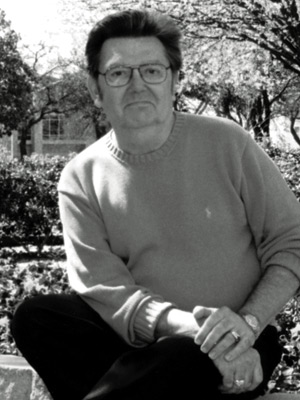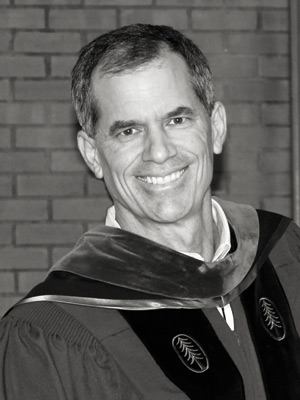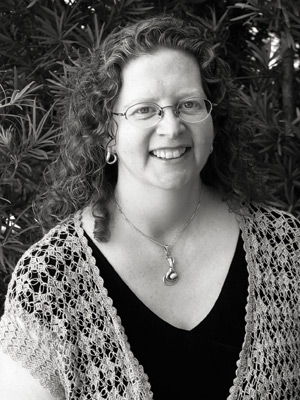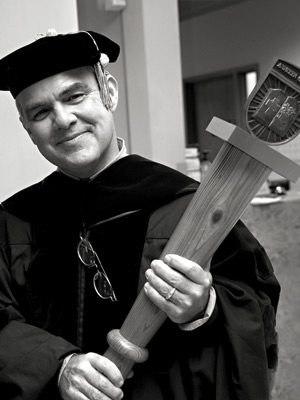by Megan Kinkade and Vickie Kirby
When alumni reflect on their Austin College experiences, it doesn’t take long for faculty names to enter the conversation. In fact, the agenda for every official gathering of alumni should include a moment to honor faculty—because that moment likely will happen regardless of planning. Alumni tell some stories with laughter and others with a tear or two, but all with appreciation for the men and women who have helped shape their lives.
The tradition of academic excellence at Austin College indeed has its foundation in a team of experts in their academic disciplines—experts dedicated to teaching and learning, with students their foremost priority.
Administrators and current students join alumni in acknowledging the quality of the Austin College faculty; recognition comes from many other sources, too. Several current and emeriti faculty members have been honored with Minnie Stevens Piper Awards for teaching or selected as Fulbright Scholars who have shared their talents around the world. The faculty includes a past CASE Texas Professor of the Year and many who have been recognized for excellence within an array of prestigious professional organizations.
Each spring, three faculty members are recognized for teaching excellence at the Austin College Honors Convocation. One receives the Excellence in Teaching Award; the other two are put forth as the College’s nominees for external teaching awards—considered Austin College awards and providing stipends, as does the Excellence in Teaching Award. This spring’s awardees, along with another year-end honoree, are offered here as examples of the excellence of Austin College faculty.
One commonality binds these educators: they define their work not in research or in grading or giving lectures, but in mentoring their students and inspiring them to discover and reach toward their own potentials.

 HOWARD A. STARR
HOWARD A. STARR
2012 Austin College Excellence in Teaching Award
Howard Starr completed 47 years on the Austin College faculty this spring, certainly placing him among the longest-tenured faculty at the College, if not the longest. “I’ve seen so many buildings come and go, I can probably tell you where every nail is,” he said. He’s seen a lot—and he’s taught a lot of students. And, this spring, he received the 2012 Austin College Excellence in Teaching Award.
“To me, teaching is both an art and a science,” Howard said. “As a professor over the last 47 years at Austin College and five years as a high school Advanced Placement biology teacher, I know of no other position where the slate is clean each September. Yet the challenges to harness the most from each of the new and returning students remain utmost. It has been fun to say the least!”
In his many years at Austin College, Howard has added myriad positions to his teaching, from chair of the counseling center to campus ombudsman to dean of educational administration. Juggling multiple positions wasn’t always easy: after the construction of Wortham Center, Howard was both a psychology professor and vice president of the now-defunct College Relations Division (including the areas of admission, financial aid, alumni and parent relations, college information, and the mailing and printing services).
“There were days when I’d go from the second floor, running departments, downstairs to teach in the classroom there at that time, then back upstairs for another meeting,” he said.
But over the years, Howard has held to his first passion: teaching psychology. That passion for his field and for his students has remained constant and has made an impression. He also received the College’s Excellence in Teaching Award 10 years ago.
His flagship course is “Death and Dying,” which grew out of his interest in the psychology of hospice. It was a new arena of study when he took it up, and so required that he spend a sabbatical in England to study hospice treatments. He also spent time in Israel studying and exploring the psychology of bereavement.
He now has taught the course every semester for 25 years. “That’s my favorite course, but what I learned in the ombudsman position is that students are not numbers,” Howard said. “I think being the campus ombudsman was one of my formative jobs. It was day-in and day-out about solving problems for students. All have their own private stories—some are good, some are not so good. I began to see just how many students are carrying emotional burdens, and understanding where they are emotionally versus academically.”
That realization colors his interactions with his students from day one. “I’ll say, ‘I’m Howard—let’s get that ‘doctor’ out of the way. I want you to enjoy this class; I want you to feel the way I feel.’ That can only be done with one-on-one interaction,” he said.
His classes, heavily laced with film clips to convey emotion and realism, carry the impression of a one-act play, with Howard front and center as the hypnotic lead. Barely checking his notes, he educates and entertains with frequent stories and asides. And he isn’t afraid to take an intermission—he will pause in his lectures to encourage students to stretch or do jumping-jacks. “Make sure you’re awake!” he says boisterously.
His students appreciate it. “I like that he pauses and encourages us to stand up to make sure we’re awake and paying attention,” said Jake Wilson ’14. “He really seems to enjoy what he’s teaching.”
Professor of Psychology and Education
B.A., University of Dallas. M.A., Southern Methodist University. Ph.D., East Texas State University
Began teaching at Austin College in 1964
 PETER SCHULZE
PETER SCHULZE
Austin College 2012 Nominee: CASE Professor of the Year
Peter Schulze, professor of biology and environmental science, was surprised when he was named the 2012 CASE Professor of the Year nominee.
“I have lots of colleagues who are outstanding scholars, so it is quite an honor. But one does have to wonder about a computer error,” he said with a wry smile.
As a child, he was familiar with the career of a college professor. His father was a sociology professor, and his mother was an academic librarian. “As a kid I didn’t think about my career path that much,” Peter said. “It wasn’t a foreign idea to be in education. Later I realized my career is a great deal—I don’t know any other career where one has so much freedom and is so routinely assumed to be doing one’s best.”
“College professors basically get to do what they want to do all day long (except grading) and—at a well-run institution like Austin College—get to teach courses they are best suited for because that is best for the students,” he said. “Every year, we get new crops of strong students, and that’s energizing. And often they go on to great success and keep in touch now and then, and that’s a gas. Research is similar in terms of the freedom—we choose our own questions and discover things no one knew. Some of those discoveries are pretty trivial, but it’s still fun.”
Peter is enthusiastic about his subject, making him a good fit for his role as the director of the Center for Environmental Studies. Every other year, Peter now teaches “Prairie Restoration” during January Term, focusing on the College’s Sneed Environmental Research Area. During the course, students conduct controlled burns, do other land management tasks, and track the recovery of the prairie restoration Peter has been leading since 2001.
“I think of the Sneed project as ‘hobby research,’ and I think of my ‘real’ research as aquatic ecology, because I have more experience with plankton than prairies,” he said. His aquatic research focuses on plankton ecology, and particularly the effects of sediment in Lake Texoma.
“I didn’t intend to add a second research topic. Students led me to try to restore native prairie at the Sneed property. Sneed probably will never again be a true native prairie, but it’s come a long way. The project has grown very opportunistically, but it’s worked out well so far,” he said.
Peter hopes to be just as flexible in his classroom. “You can’t do the same things in classes of different sizes,” he said. His classes range from four students to 50.
“My students don’t seem shy about asking questions and engaging in discussions,” he said. “I hope they see me as approachable. I have an 18-year-old son, and I’m teaching to 18-year-olds. I like to imagine that I have some insight into what high school was like for them and how college is different. Compared to years ago, my freshman classes spend much more time on basic skills, like how to take notes and study. Years ago I would have thought it irresponsible to take that time away from topical coverage.”
When asked what advice he would give a first-year college teacher, Peter said not to feel obliged to cover all of the “usual” material for a particular course, but rather do more justice to the most important material. “Develop your own courses; don’t just imitate models that you experienced or have imagined,” he said.
Again smiling dryly, he said, “I don’t consider myself particularly innovative; I just try to figure out what seems to work okay.”
Professor of Biology and Environmental Science
Director of the Center for Environmental Studies
B.A., Lawrence University. M.S., University of Wisconsin–Milwaukee. Ph.D., Dartmouth College
Began teaching at Austin College in 1994
 JULIE HEMPEL
JULIE HEMPEL
Fulbright Scholar for 2012 – 2013
It’s possible Julie Hempel grew up in the wrong country.
“Mexico holds a big draw for me, and has formed the person that I am,” she said. Her first trip was at age 16—and it ignited her interest in Mexican culture, history, and expression. “I went to Mexico and fell in love with the culture,” she said. “I thought, ‘this is something I can’t just push to the side—this can’t be just a hobby. This has to be a big part of my life.’”
And it is. Julie, an associate professor of Spanish, was named a Fulbright Scholar for 2012 – 2013 and began this month to teach and research at the Universidad Autónoma de Querétaro in Querétaro, Mexico, where she will remain until June 2013.
She is teaching upper-level literature in English and graduate-level literature in Spanish, and both courses focus on narrative written by descendants of Mexicans in the United States, known as Mexican-American or Chicano literature. In addition, Julie will translate the novel Hasta el año que viene (Until the Coming Year) by Aurora Velasco from Spanish to English, and plans to write additional articles and collect research for the course “Hybrid Identities: Asian Immigrants in Latin America” that she teaches with Terry Hoops, Austin College associate professor of anthropology.
Julie is particularly interested in the stories of Mexican-Americans or Chicanos, and has taught various Austin College classes on the subject, including: “Difference and Identity on the Border,” “Mexican and Chicano Popular Culture,” and “Borderlands/La Frontera.”
“The cultural wall is starting to come down between Mexicans and Mexican-Americans; or, at least, there’s a willingness to start adding some windows,” she said.
 She feels this study of identity is important for everyone. “In general, every person should reflect on his or her identity. None of us should take for granted who we are, what groups we move in, and how those groups mix to form our identity,” she said.
She feels this study of identity is important for everyone. “In general, every person should reflect on his or her identity. None of us should take for granted who we are, what groups we move in, and how those groups mix to form our identity,” she said.
The Fulbright trip has its challenges. “The Mexican education system tends to be much more formal and programmatic,” Julie said. “Moreover, hardly any academics trained in Mexican-American literature have taught there.” It’s rare for Mexican students to have read Chicano stories.
“The border is porous when it comes to people and big business, but books don’t make it across the border well,” Julie said. “I’ve become the book ‘smuggler’—not that the books are illegal, but I’m carrying them back and forth.” She is excited about the $750 provided by the Fulbright award to buy materials to use in her class and donate to the host school. Her trip will leave a lasting impact on the Universidad Autónoma de Querétaro—particularly in the library offerings.
Language is another challenge. “I’ve never actually been in a classroom with Mexican students learning English, so that will be challenging,” Julie said. But that challenge is balanced with opportunity; most Mexican-American literature written since the 1980s has been written in English, and so is better-suited to an English based course on Mexican-American literature than to her Spanish courses at Austin College.
Julie is enthusiastic about Mexico and about teaching. “From an early age, some of my favorite people were teachers. With my early respect and admiration for teachers, when I decided to study Spanish, I decided to teach it, and I found it brought me out of my shell,” she said. She brings that sense of excitement and discovery to the classroom.
“I hope for a sense of exploration and dialogue in the classroom, of experiencing something together as a group, trying to lead students but also to let them explore for themselves,” she said.
“I realized that here at Austin College, even more than during graduate school,” Julie said. “The focus is on teaching and you get to see that blossom.”
Associate Professor of Spanish
B.A., Eastern Michigan University. M.A., University of Arizona. Ph.D., University of Michigan
Began teaching at Austin ” College in 2002
 HUNT TOOLEY
HUNT TOOLEY
Austin College 2012 Nominee: Minnie Stevens Piper Professor
Hunt Tooley is an academic storyteller. Like Aesop’s fables, his tales are packed with lessons for the modern world; unlike Aesop, all of Hunt’s “stories” are true.
“I try to go beyond a mere textbook approach,” the professor of history said. “I hope to engage the students with layers of narratives—often conflicting—that face them, the students, with choices. I try to do this through telling various stories in class and bringing the students to make sense of them, in discussion and writing. Thus, I try to encourage critical thinking in history. But it is only possible to think critically about history once you build up some historical knowledge.”
Hunt came to the College in 1991, and has been connecting the past to the present for students ever since. But he came to teaching only through his devotion to history. “I think I went into teaching so that I could make a living as a historian. The original draw was not teaching, per se, but history,” he said. He found he loves teaching, but remains dedicated to his own scholarship, with particular research interests focusing on modern Europe after the French Revolution. His recent studies analyze the growth of mass brutality, war, revolution, and peacemaking, as well as issues of ethnic identity and ethnic conflict.
But Hunt’s unique characteristic is his “ability to make connections between the material we are studying, the questions and comments of the students, and the issues that modern Americans face today,” he said. “I really enjoy my work.”
One way Hunt is able to make connections with history and with his students is by taking students to the places of history. He has led January Term courses on World War I and several on World War II, taking students to battlefields from Normandy to Berlin. He has taught “Imperial Capitals, Imperial Cultures,” and traveled with students to Istanbul, Vienna, Venice, and Rome to see the modern cities for themselves, so to better connect to the cities of the past. His January Term courses also have included trips to Turkey, Paris, the Franco-Spanish border, and the Italian Basilicata.
“I think history can be enhanced by going to the place, sometimes,” he said. “Certainly, we can get closer to the reality of a situation, of a culture, of an event. This certainly can intensify historical issues for students. And for some it can serve in the opposite direction: offering a great introduction to find out more.”
Hunt said he has had good teachers come in all varieties. “Great teachers are those who awaken the interest of students or manage to open the minds of students to new information and to new ideas,” he said. “Some good teachers give great lectures. Some good teachers hardly lecture at all but rather use some other approach. At the most general level, I think it is best to find out what you do best, to try to find new ways to engage students, and then over time to work between those two goals.”
Hunt also can be found outside the classroom, pursuing his other passion: music. He first started playing the trombone when he was 12, and marched in the Texas A&M Aggie Band in college. Now, he plays ukulele and other instruments in Bad Hat, his band, and he has been the principal trombonist in the Sherman Symphony since his first month at Austin College.
“I have been involved in music in some way all my life,” he said, and of course, he has found ways to mix history with his love of music. For several years, Hunt and his wife have led English Country Dance sessions locally, and several Austin College students have taken part, even forming a campus group. “In several cases, when the theme or subject matter of a class has warranted, I have made the dances a part of the course,” Hunt said. “To tell the truth, this dancing gives a much more internal understanding, reproducing the actual movements of individuals from two or three hundred years ago while hearing the music to which they actually were dancing. Plus, it is fun to do.”
Professor of History
B.A., M.A., Texas A&M University. Ph.D., University of Virginia
Began teaching at Austin College in 1991
